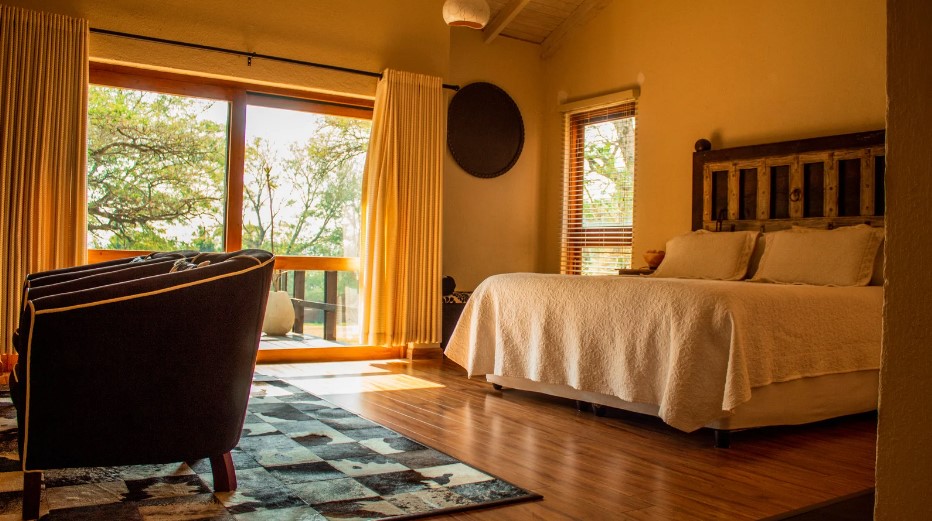When planning a trip, choosing the right accommodation can make or break your experience. With a wealth of options available, hotels and Airbnb have emerged as two of the most popular choices. Both offer unique advantages and cater to different types of travelers. So how do you decide which is best for your next trip? Let’s break down the key factors to consider.
1. Cost Comparison
One of the primary considerations when booking accommodation is the cost.
Hotels:
Hotels often have set pricing that includes amenities like housekeeping, room service, and access to facilities such as pools or gyms. While you might snag a deal during off-peak times, hotels in prime locations or during high-demand seasons can be expensive.
Airbnb:
Airbnb prices tend to be more flexible and often depend on the property type and location. If you’re traveling with a group, renting an entire home or apartment can be more cost-effective than booking multiple hotel rooms. However, additional fees like cleaning charges and service fees can add up, making some Airbnbs as pricey as hotels.
Winner: Airbnb for budget-conscious travelers or larger groups; hotels for solo travelers during off-peak times.
2. Amenities and Services
Hotels:
Hotels excel in providing consistent amenities and services. You’ll typically have access to daily housekeeping, concierge services, restaurants, and sometimes luxurious extras like spas and rooftop bars. These features make hotels an attractive option for those seeking convenience and pampering.
Airbnb:
Airbnb properties offer a more home-like experience, with amenities such as kitchens, laundry facilities, and living spaces. This setup is ideal for travelers who prefer to cook their meals or require more space, especially for extended stays. However, the availability of amenities varies significantly between listings.
Winner: Hotels for convenience and luxury; Airbnb for a home-away-from-home feel.
3. Location Flexibility
Hotels:
Hotels are often located in central, tourist-friendly areas or near transportation hubs, making them ideal for first-time visitors or those who want easy access to attractions.
Airbnb:
Airbnb’s diverse listings can place you anywhere—from bustling city centers to quiet neighborhoods. This flexibility allows you to immerse yourself in local culture and explore off-the-beaten-path locations.
Winner: Airbnb for location variety; hotels for central convenience.
4. Privacy and Space
Hotels:
Hotels typically offer private rooms, but shared spaces like lobbies, pools, and gyms mean less overall privacy. Standard hotel rooms can also feel cramped, especially for families or longer stays.
Airbnb:
Airbnb listings range from single rooms to entire homes, offering more privacy and space. This makes them ideal for families, groups, or couples who value seclusion.
Winner: Airbnb for privacy and spaciousness.
5. Safety and Reliability
Hotels:
Hotels are regulated and adhere to industry standards for safety and cleanliness. With 24/7 staff availability, they provide a sense of security that many travelers appreciate.
Airbnb:
Airbnb experiences can be hit or miss. While many hosts are trustworthy and maintain high standards, there’s always a risk of cancellations, unclean properties, or inaccurate listings. Airbnb’s customer service can also be less responsive compared to hotel staff.
Winner: Hotels for reliability and safety.
6. Cultural Experience
Hotels:
Hotels often cater to tourists and provide a somewhat standardized experience. While this ensures comfort, it may lack the cultural immersion some travelers seek.
Airbnb:
Staying in an Airbnb can offer a deeper connection to the local lifestyle. Whether it’s a charming apartment in a historic neighborhood or a rural farmhouse, Airbnb accommodations often provide a unique, authentic experience.
Winner: Airbnb for cultural immersion.
7. Who Should Choose Hotels?
Hotels are ideal for:
- Business travelers who need reliable Wi-Fi, conference rooms, and concierge services.
- Tourists on short trips who prioritize convenience and central locations.
- Luxury seekers looking for high-end amenities like spas, fine dining, and housekeeping.
8. Who Should Choose Airbnb?
Airbnb is perfect for:
- Families or groups needing extra space and facilities like kitchens.
- Long-term travelers looking for a home-like environment.
- Adventurous souls who want to explore unique accommodations and local neighborhoods.
The Verdict
Ultimately, the choice between hotels and Airbnb comes down to your travel style, budget, and preferences. If you value consistent service, convenience, and luxury, hotels are the way to go. On the other hand, if you’re seeking affordability, space, and a more personalized experience, Airbnb is a fantastic option.
Why not mix and match? For a truly diverse experience, consider splitting your stay between a hotel and an Airbnb. This way, you can enjoy the best of both worlds—the luxury of a hotel and the authenticity of an Airbnb—on your next adventure!






